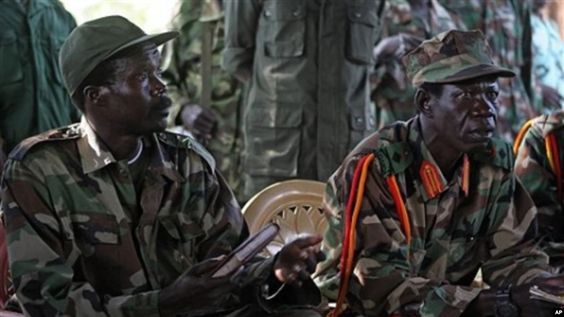Africa
Rebel victims in Uganda are divided about the ICC’s plans to begin proceedings against Kony

Ugandan Lord’s Resistance Army victims’ reactions to the International Criminal Court (ICCpreparations )’s to begin proceedings against the group’s fugitive leader, Joseph Kony, have been conflicted.
While some believe that taking action against the man responsible for the brutal, two-decade-long struggle in northern Uganda would be positive, others believe that it would be meaningless until Kony was prosecuted.
The most wanted suspect by the International Criminal Court is Kony.
He began his uprising against President Yoweri Museveni’s rise to power in 1987.
The ICC issued an arrest order for Kony in 2005 after opening inquiries into the Lord’s Resistance Army uprising in 2004.
On 33 charges of war crimes and crimes against humanity, Kony is wanted.
He is accused of killing people, subjecting people to abuse, enslaving them, raping them, and attacking civilians.
The rebel commander is still evading capture despite attempts by several governments, including the United States.
Karim Khan, the ICC prosecutor, said last Thursday that he had requested to begin hearings against Kony while the rebel commander was not present.
Khan stated that the action will step up search efforts for Kony.
He said it would be a significant turning point for the victims who had waited so patiently for justice for over 20 years.
With regard to a raid on May 19, 2004, in Lukodi village, a camp for internally displaced persons in the Gulu area of northern Uganda, retired bishop Nelson Onono Onweng talked with VOA.
Onweng was a religious authority who resided in the camp.
According to Onweng, more than 60 people were killed during an attack on the community by LRA insurgents commanded by Dominic Ongwen.
The bishop’s immediate family accounted for 17 of the fatalities.
Ongwen is currently incarcerated for 25 years.
The bishop stated that if the court can uphold the rule of law even without Kony present, he and other victims will have faith in it.
The witnesses might all pass away and the evidence could disappear if they keep waiting until Kony is apprehended and brought to court, he said. Therefore, since it has taken too long, if they could do.
The ICC’s Khan stated that if Kony’s arrest leads to the accusations being proven in his absence, a subsequent trial might go more quickly and successfully.
Northern Ugandan lawmaker Beatrice Akello said that if Kony is not heard, the action is not useful.
Who would be Joseph Kony’s defender? she questioned.
“How will they carry out the verdict after it has been rendered?
This waiting around stuff is not what I desire. Let folks come out and assist us if they want to. However, they must not act as though they are assisting us when they are not.
Multiple attempts by the Ugandan authorities to apprehend Kony have failed. State minister for international affairs for Uganda, Henry Oryem Okello, said that Kony will come under pressure as a result of the current action.
As contrast to a Kony who is out in the woods there and isn’t subject to a judgment of guilt on crimes [against] of humanity, he remarked, “This will be a Kony out there in the bush who’s now proven guilty.”
Over 60,000 individuals, including 20,000 children, were kidnapped by the LRA; many of them were used as recruits for its army. A further 100,000 individuals are thought to have died and about 1.5 million people were uprooted by the LRA.
Northern Uganda, the Central African Republic, South Sudan, and the Democratic Republic of Congo served as the bases for Kony’s lethal activities.
